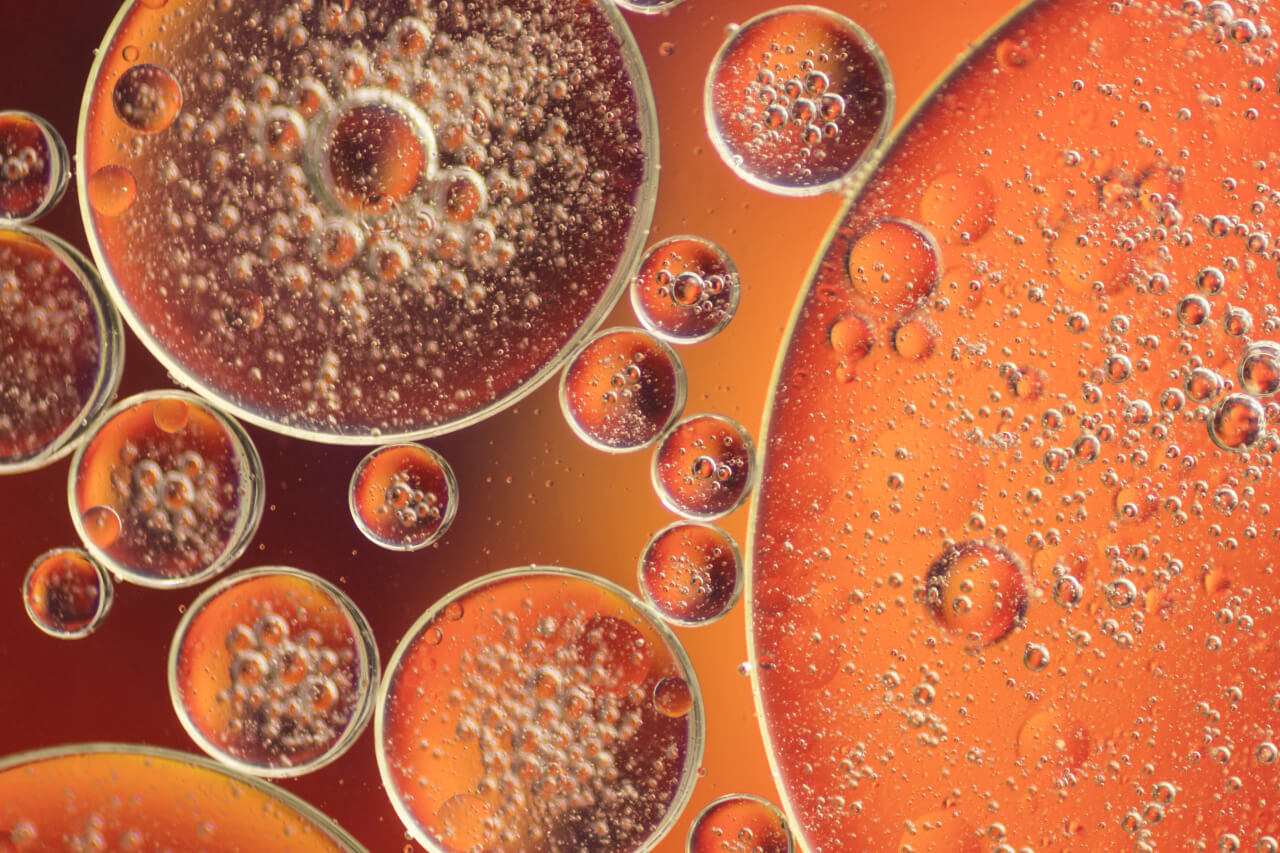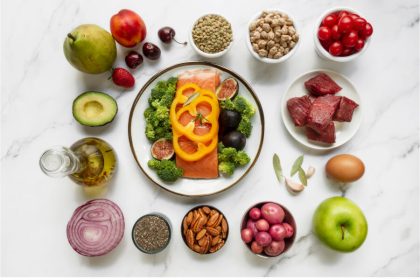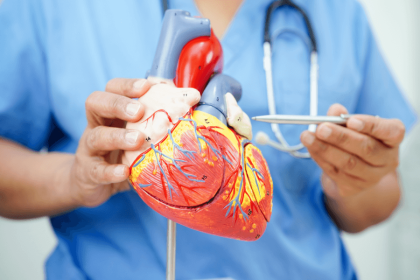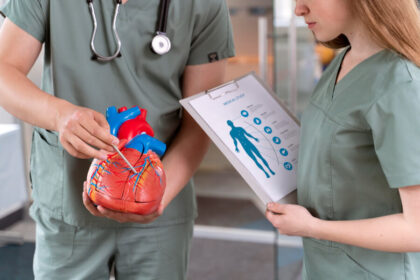As the holiday season approaches, our thoughts turn to festive decorations, joyful gatherings, and the rich, savory indulgences that accompany these celebrations.
It’s a time when we allow ourselves a little extra leeway, reaching for another helping of grandma’s famous casserole or a second slice of decadent pie.
Yet, amidst the merriment, there’s an unseen guest at our tables – one that can have a lasting impact on our health long after the last ornament is packed away: cholesterol.
Cholesterol, or lipid disorder that waxy substance coursing through our veins, is vital for building cells and producing hormones.
However, when its levels spike, it can lead to serious health concerns, particularly for our hearts.
The holiday season, with its tendency towards excess, poses a unique challenge in maintaining balanced its levels.
The good news is that with awareness and a few strategic choices, we can navigate this festive time without compromising our health.
In this comprehensive guide, we’ll explore the intricate dance between cholesterol and our well-being.
We’ll delve into the science – what it is, how it functions, and why keeping it in check is crucial for our longevity.
We’ll arm you with practical tips and lifestyle adjustments to help you enjoy the holiday feasts without fear of cholesterol’s silent but potentially harmful effects.
From understanding the impact of dietary choices to recognizing the role of stress and how it intertwines with our physical health, this article aims to be your ally in achieving a heart-healthy holiday season.
So, as you deck the halls and plan your holiday menus, let’s take a moment to consider the gift of health.
By the end of this guide, you’ll be equipped with the knowledge and tools to avoid its spikes, ensuring that your holidays are not only merry and bright but also heart-friendly.
What is Cholesterol?
It is a fatty substance that is crucial for building cell membranes, producing hormones, and aiding in the digestion of fat.
It circulates in the blood and is classified into two types: low-density lipoprotein (LDL) and high-density lipoprotein (HDL).
LDL Cholesterol: The “Bad” Cholesterol
LDL cholesterol is often referred to as the “bad” cholesterol.
High levels of LDL can lead to the accumulation of plaque in the arteries, narrowing them and increasing the risk of heart disease and stroke.
HDL Cholesterol: The “Good” Cholesterol
HDL cholesterol is considered the “good” cholesterol. It helps remove LDL cholesterol from the bloodstream, reducing the risk of plaque formation in the arteries.
Symptoms
High cholesterol itself doesn’t typically cause symptoms.
It is often referred to as a “silent” condition. The only way to detect high cholesterol is through a blood test, known as a lipid panel.
Causes
Unhealthy Diet
Saturated and Trans Fats: Consuming foods rich in saturated and trans fats can elevate LDL cholesterol levels.
Sources include red meat, full-fat dairy products, fried foods, and processed snacks.
While the impact of dietary cholesterol on blood levels varies, excessive intake of cholesterol-rich foods like organ meats and shellfish can contribute to elevated levels.
Lack of Physical Activity
Insufficient physical activity can lead to weight gain and negatively impact its levels.
Regular exercise helps raise HDL (good) and lower LDL (bad) cholesterol.
Genetics and Family History
Some individuals may have a genetic predisposition to high cholesterol.
Familial hypercholesterolemia is a genetic disorder that causes significantly elevated levels, even in the absence of unhealthy lifestyle factors.
Obesity
Obesity, especially central or abdominal obesity, is associated with higher levels of LDL cholesterol and lower levels of HDL .
Smoking
Effect on HDL : Smoking has been linked to lower levels of HDL cholesterol (good), making individuals more susceptible to elevated LDL cholesterol levels.
Age and Gender:
Age: It’s levels tend to increase with age.
As individuals age, the efficiency of the body’s natural processes for regulating lipid disorder may decrease.
Gender: Before menopause, women often have lower LDL cholesterol levels than men.
However, post-menopause, women’s cholesterol levels may rise.
Medical Conditions:
Diabetes
Individuals with diabetes are at an increased risk of lipid disorder.
Diabetes can affect the body’s ability to regulate lipid disorder effectively.
Hypothyroidism
An underactive thyroid gland (hypothyroidism) can contribute to elevated lipid disorder levels.
Kidney Disease
Impaired kidney function may impact cholesterol metabolism, leading to higher levels.
Medications
Some medications, such as corticosteroids, diuretics, and certain immunosuppressants, may contribute to elevated lipid disorder levels as a side effect.
Hormonal Factors
Pregnancy and Birth Control Pills: Pregnancy and the use of birth control pills can temporarily raise lipid disorder levels.
However, this is often reversible.
Alcohol Consumption
Excessive Alcohol Intake: While moderate alcohol consumption may have some cardiovascular benefits, excessive alcohol intake can lead to higher triglyceride levels and contribute to elevated lipid disorder.
Other Factors
Stress: Chronic stress may influence unhealthy behaviors and contribute to high lipid disorder levels.
Inflammatory Conditions: Certain chronic inflammatory conditions may impact cholesterol metabolism and increase the risk of lipid disorder.
Understanding the various factors contributing to lipid disorder is crucial for implementing effective preventive measures.
When High Cholesterol is Risky
It becomes a significant risk factor when it contributes to the formation of atherosclerosis, the buildup of plaque in the arteries.
This can lead to:
Coronary Artery Disease: Reduced blood flow to the heart can cause chest pain or heart attacks.
Stroke: Plaque formation in the arteries supplying the brain increases the risk of strokes.
Peripheral Artery Disease: Narrowed arteries in the legs or arms can lead to pain and decreased mobility.
How Lifestyle Choices Can Help Manage Your Cholesterol
During the holidays, it’s easy to overindulge, but with a few adjustments, you can keep your cholesterol levels in check:
Opt for plant-based dishes: Incorporate more vegetables, fruits, and whole grains into your holiday meals.
Choose lean proteins: Select skinless poultry and fish over fatty cuts of meat.
Be mindful of portion sizes: Enjoy your favorite holiday treats in moderation to avoid excess calorie and fat intake.
Medication’s Place in Cholesterol Management
Medications, particularly statins, are often prescribed to help lower cholesterol levels.
They work by inhibiting the enzyme responsible for cholesterol production in the liver.
However, they should be used in conjunction with lifestyle changes for optimal results.
Why the End of the Year is a Great Time to Think About Heart Health?
The end of the year is a period of reflection and goal-setting.
Take this opportunity to review your heart health and make plans to improve your lifestyle for the coming year.
Navigating the Holidays: Tips to Avoid Cholesterol Spikes
The holiday season often brings indulgent meals and festive treats, which can contribute to cholesterol spikes.
Here are some practical tips to help you enjoy the celebrations while maintaining healthy cholesterol levels:
Mindful Eating
Be conscious of portion sizes.
Enjoy your favorite dishes but in moderate amounts to avoid overindulging.
Slow down and savor the flavors.
This allows you to recognize when you’re satisfied, preventing excessive consumption.
Choose Heart-Healthy Options
Opt for lean proteins such as turkey, chicken, fish, or plant-based options.
Limit intake of red and processed meats.
Include sources of healthy fats like avocados, nuts, and olive oil.
These can positively impact cholesterol levels.
Modify Recipes
Modify recipes to make them heart-healthy.
Use whole grains, reduce saturated fats, and experiment with healthier cooking methods.
Incorporate Fruits and Vegetables
Include a variety of colorful fruits and vegetables in your meals.
They provide essential nutrients and fiber, which can help manage cholesterol.
Be Mindful of Desserts
Opt for desserts that are lower in saturated fats and refined sugars.
Fresh fruit, yogurt, or small portions of dark chocolate can be satisfying alternatives.
Hydration is Key
Stay hydrated with water.
Limit sugary beverages and excessive alcohol, as they can contribute to increased calorie intake.
Plan Physical Activity
Incorporate physical activity into your holiday routine.
Take a walk, dance, or engage in other enjoyable exercises to help balance the extra calories.
Limit Processed and Packaged Foods
Be cautious of processed and packaged foods, which may contain hidden saturated and trans fats.
Opt for whole, fresh foods whenever possible.
Choose Smart Snacks
Keep nutritious snacks on hand.
Choose options like raw nuts, fresh fruit, or vegetable sticks with a light dip.
Stay Consistent with Medications
If you are on cholesterol-lowering medications, ensure consistent adherence, especially during the holiday season.
Practice Stress Management
Manage stress through techniques such as deep breathing, meditation, or yoga.
Elevated stress levels can impact cholesterol.
Stay Informed
Educate yourself and your loved ones about heart-healthy choices.
Encourage shared responsibility for making mindful food choices during gatherings.
Communication is Key
If attending holiday gatherings, communicate any dietary restrictions or preferences to hosts.
This ensures there are options that align with your health goals.
Remember, the key is balance and moderation.
By incorporating these tips, you can navigate the holiday season without compromising your cholesterol management goals.
Conclusion
As the holiday season wraps us in the warmth of festivities and delicious traditions, maintaining a mindful approach to our dietary choices becomes paramount.
The quest to avoid cholesterol spikes during these celebratory moments involves a delicate balance of savoring the joy of the season while making conscious decisions for heart health.
By embracing mindful eating practices, opting for heart-healthy alternatives, and incorporating colorful fruits and vegetables into our feasts, we pave the way for a healthier holiday experience.
Recipe modifications, smart snacking, and staying hydrated further contribute to a harmonious blend of indulgence and well-being.
As we gather with loved ones to create cherished memories, it’s essential to prioritize our health.
Choosing lean proteins, managing portion sizes, and incorporating physical activity into our celebrations are steps toward a heart-healthy lifestyle.
In the midst of the festivities, let us not forget the power of communication—expressing our dietary preferences and restrictions to hosts ensures a supportive and inclusive environment for all.
Moreover, staying consistent with medication routines, practicing stress management techniques, and fostering a shared responsibility for heart health contribute to a holistic approach.
As we conclude this guide to avoiding cholesterol spikes during the holidays, let it serve as a reminder that joyous celebrations and heart-conscious choices can coexist.
With these strategies in our holiday toolkit, we embark on a season of love, laughter, and well-being—a gift we give to ourselves and our loved ones.
Cheers to heart-healthy holidays and a vibrant, joyful start to the coming year!
FAQs
Can I enjoy holiday meals without worrying about cholesterol spikes?
Yes, you can!
The key is moderation and making heart-healthy choices.
Opt for lean proteins, incorporate fruits and vegetables, and be mindful of portion sizes to enjoy the festivities without compromising your levels.
Are there specific foods to avoid during holiday gatherings to manage cholesterol?
Limit foods high in saturated and trans fats, such as processed snacks and fatty meats.
Choose heart-healthy alternatives like lean proteins, whole grains, and foods rich in omega-3 fatty acids.
How can I navigate dessert options without causing a spike in cholesterol?
Choose desserts wisely by opting for those lower in saturated fats and refined sugars.
Fresh fruits, yogurt, or small portions of dark chocolate are delicious alternatives that won’t negatively impact its levels.
Can physical activity help offset the effects of holiday indulgence on cholesterol?
Absolutely! Incorporate physical activity into your holiday routine.
A brisk walk, dance session, or any enjoyable exercise can help burn calories, balance indulgences, and positively impact its levels.
How can I communicate my dietary preferences at holiday gatherings without feeling awkward?
Politely inform hosts about your dietary preferences or restrictions in advance.
Most hosts appreciate the heads up and will likely provide options aligned with your heart-healthy choices.
Are there quick tips for staying heart-conscious during impromptu holiday events?
Absolutely! Opt for smart snacks like raw nuts or fresh fruit, stay hydrated with water, and practice mindful eating even in impromptu situations.
These quick tips can make a significant difference in managing its levels.





